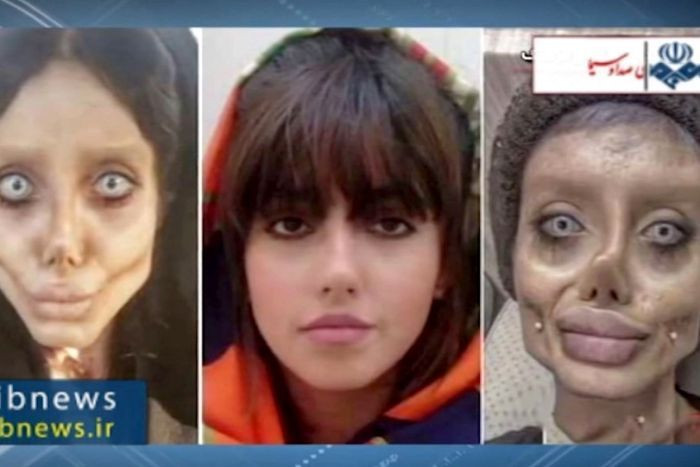Instagram Star 'Zombie Jolie' Speaks From Jail On Iranian State TV: 'Admitting That The Look Was Fake'
She did reveal that the look was made with the help of makeup and digital editing.

Iranian Instagram star Sahar "Zombie Jolie" Tabar was recently paraded on Iran's state TV as an illustration of how "social media has ruined a life." The famous internet personality gained notoriety for her extreme transformation to mimic the character in the "Corpse's Bride."
The young Iranian gal also denied reports she that endeavored to look like the famous Hollywood star, Angelina Jolie. She clarified that the appearance was inspired by the zombie-like character from the animated fantasy film.
Tabar appeared on Iranian Channel Two (IRTV2) a month after she was detained on charges of blasphemy and inciting violence. The state-run outlet also said that Iran's government isn't a big fan of her lifestyle, gaining income through inappropriate means while corrupting the ideals of young Iranians.
The 22-year-old was introduced as a "zombie," Tehran's Islamic guidance court cited her as an example of how social media fame can ruin your life. In a report by Fox News, Tabar was the only child of a divorced couple, and she could have been in the University right now if not for her strange "Corpse Bride" transformations.
Tabar acknowledges that it was her "childhood dream" to become "famous." She added that when people started to like her posts, she felt that she "was doing the right thing."
In 2017, Zombie Jolie shot to fame when she alleged that she took 50 surgeries to look like Angelina Jolie. She usually posts selfies of her weird face — sunken cheeks, swollen lips and a cartoonish tilted nose.
She did reveal that the look was made with the help of makeup and digital editing. In reality, she actually looks like an ordinary 22-year-old woman without grotesque facial features.
Last year, she shared an image with her followers of what she looks like, adding that she "does not look like her Photoshopped pictures."
Meanwhile, Amnesty International has repeatedly asked Iran to stop publicizing videos of "confessions" by incarcerated suspects, saying they "violate the defendants' rights."
© Copyright IBTimes 2024. All rights reserved.





















